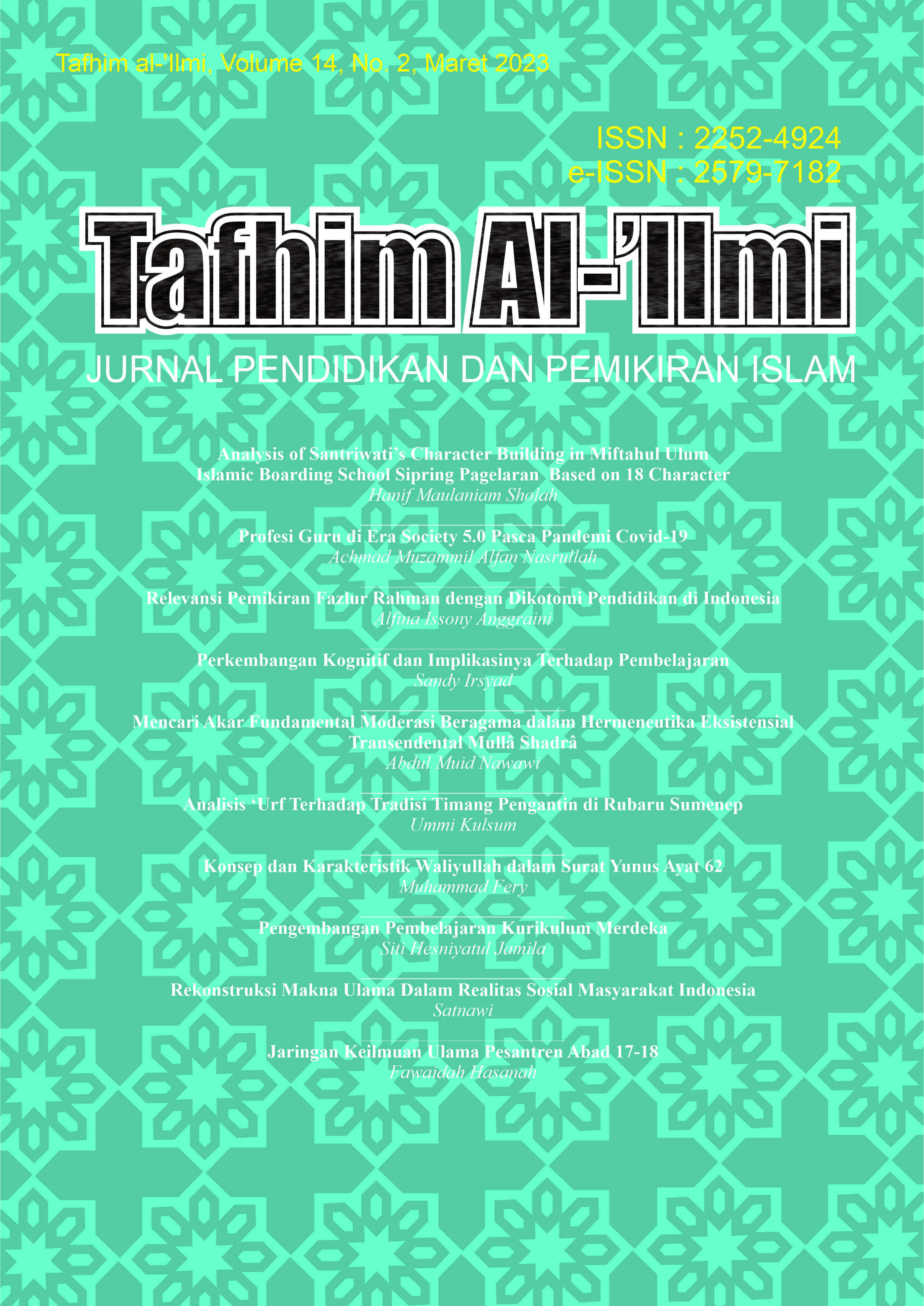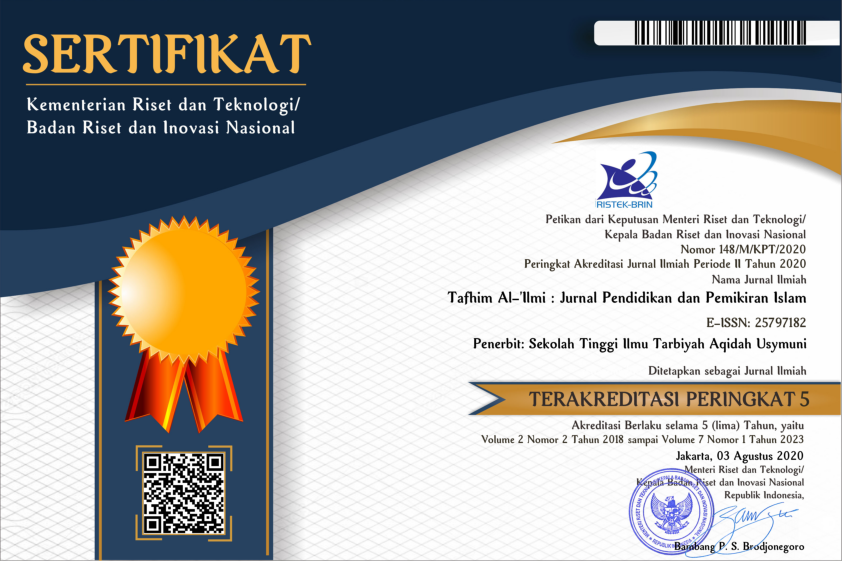Relevansi Pemikiran Fazlur Rahman dengan Dikotomi Pendidikan di Indonesia
DOI:
https://doi.org/10.37459/tafhim.v14i2.6156Abstract
This paper has a purpose, to discuss the thought of Islamic education according to Fazlur Rahman with an education currently developing. He is a modern Islamic thinker who has the idea of combining general knowledge with Islamic knowledge by inserting Islamic education into secular education. Thus, a person will gain balanced knowledge. Data is collected using library research methods, analyzing Fazlur Rahman's thoughts and their current relevance. From the research results, it can be concluded that Fazlur Rahman's thoughts are relevant to Islamic education in Indonesia. The harmony can be seen in Islamic education because both have the same goal: an effort or process to produce dignified and integrative human beings. In terms of educational methods, it should go up to the stage of understanding and analyzing, not just the stage of memorizing. Regarding the education system, Fazlur Rahman gave the idea not to reject the Western education system. It is intended that Islamic education in Indonesia can dialogue and collaborate with other disciplines. Furthermore, educators are interpreted as people responsible for students' development by seeking the development of all potentials of students, both effective, cognitive, and psychomotor potentials. This must be supported by educational facilities in the form of educators, residents, budget, facilities, and infrastructure. Â Keywords: Islamic Education, Dichotomy, Modernity, Fazlur RahmanDownloads
Published
2023-06-09
How to Cite
Wijaya, M. M. ., Faizah, F. N. ., Rahmawati, D. ., & Khalim, M. A. . (2023). Relevansi Pemikiran Fazlur Rahman dengan Dikotomi Pendidikan di Indonesia. Tafhim Al-’Ilmi, 14(2), 215–233. https://doi.org/10.37459/tafhim.v14i2.6156
Issue
Section
Articles
License

This work is licensed under a Creative Commons Attribution-ShareAlike 4.0 International License.
Artikel yang dimuat dalam jurnal ini boleh disebarluaskan, diterbitkan kembali, dengan syarat mencantumkan bahwa artikel tesebut telah dimuat di jurnal Tafhim al-'Ilmi dengan mencantumkan volume, nomor, dan halaman artikel terkait.







